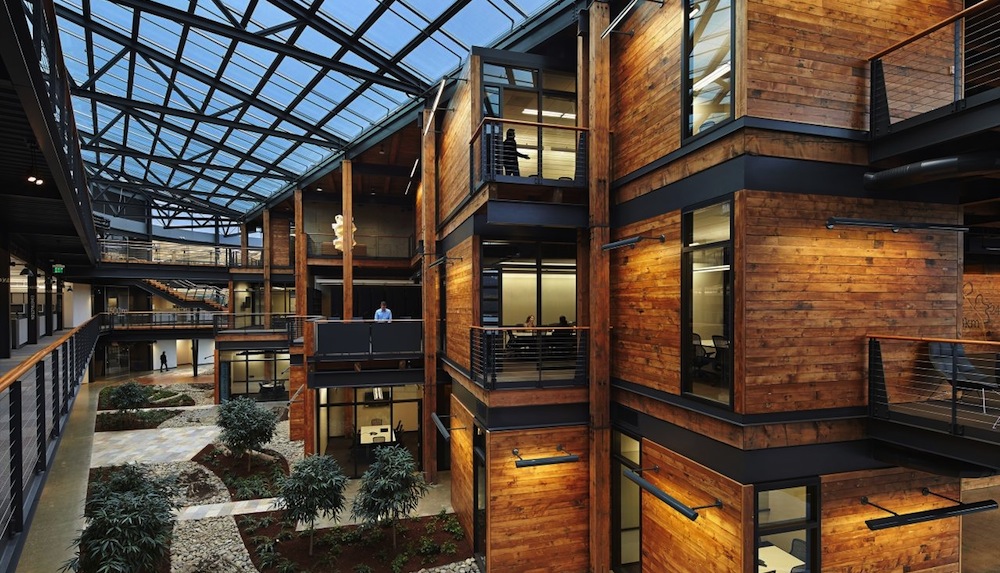Each year, the American Institute of Architects (AIA) selects the ten best green buildings. Since this will be the report’s 20th year, the organization has a large enough sample size to find some key takeaways from the projects it has recognized.
"Lessons from the Leading Edge" is a study of the 200 Committee on the Environment (COTE) Top Ten Award winning projects since 1997. The report tracks energy efficiency, water conservation, and indoor environmental quality and evaluates design quality and environmental performance.
“Top Ten winners are an extraordinary group of case studies from the leading edge of sustainable design over the past two decades,” Lance Hosey, FAIA, lead author of the report and a member of the COTE Advisory Group, said in a statement. “The projects have been studied and published widely as individual projects, but never as a group—until now. What we found is that Top Ten winners are outpacing the industry by virtually every standard of performance, but they also exemplify the integration of design excellence and sustainable performance.”
The report offered recommendations for architects (“Drive greater awareness of the health impact of building materials and need for better indoor air quality,” for example) and it noted green projects trends. Projects effectively reduce water and often exceed AIA 2030 Commitment targets for energy savings. They tend to be located in urban areas and skew more towards the West Coast of North America.
"Lessons from the Leading Edge" is being released before the 2016 Top Ten Green Project awards, which will be announced April 22.
Related Stories
Green | Apr 20, 2015
USGBC opens public comment period for LEED for existing multifamily buildings
The new LEED Operations and Maintenance: Multifamily program will offer solutions for existing multifamily projects with at least 20 units.
Cultural Facilities | Apr 16, 2015
Milwaukee’s Lakeshore State Park visitor center will be ‘off the grid’
The plans also include a built-in wastewater treatment system and rainwater collection.
Green | Apr 16, 2015
Passive House Institute introduces new categories for building certification
The new evaluation procedure considers the building in an environment where only renewable energy is used. Sun and wind provide the primary electricity.
Green | Apr 16, 2015
New version of Building Energy Data Exchange Specification launched
BEDES is a dictionary that facilitates consistent exchange of building characteristics and energy use data between tools and databases in the building energy efficiency sector.
Green | Apr 14, 2015
USGBC will recognize energy and water standards for the Living Building Challenge
This move means that projects achieving the energy and water requirements in Living Building Challenge will be considered as technically equivalent to LEED.
Green | Apr 7, 2015
USGBC survey shows Fortune 200 companies prioritize green building
The world’s top-performing companies are prioritizing sustainability as part of their corporate social responsibility efforts, and a majority of them are using LEED to achieve their goals, according to the new survey.
Codes and Standards | Apr 6, 2015
DOE releases Better Buildings Workforce Guidelines
The guidelines are aimed at strengthening and streamlining commercial building workforce training and certification programs for workers in energy auditing, building commissioning, building operations, and energy management.
Green | Apr 3, 2015
Georgia may ban use of LEED on state buildings
Georgia's state legislature is considering a measure to require all state buildings to only use green building standards that permit the use of Georgia's lumber.
Green | Apr 3, 2015
Energy benchmarking law helps make D.C. top ranked Energy Star city
First-in-the-nation law requires public reporting of annual energy performance
Green | Apr 1, 2015
Global wind power installations expected to slow through 2019
After a 20% falloff in 2013, the global wind power industry made a strong comeback in 2014, with a record 51.2 gigawatts installed. But a new report from Navigant Research forecasts a curtailment in growth.














